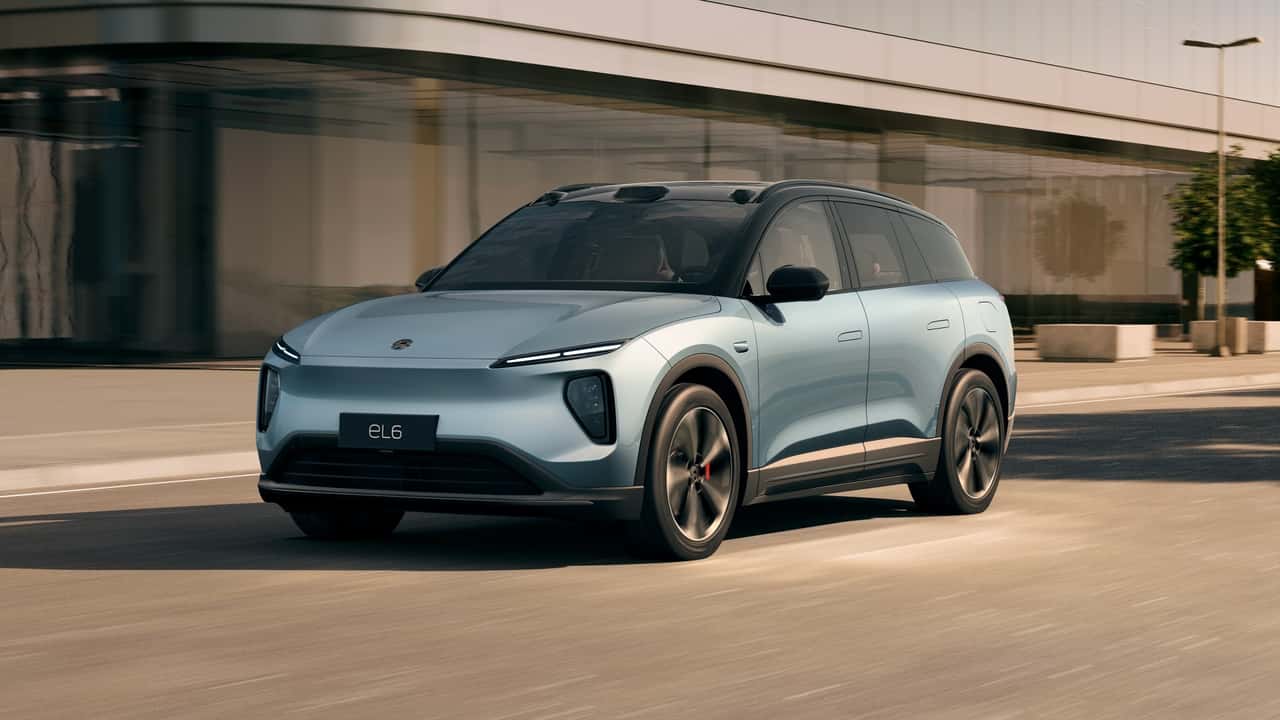The Chinese automaker Nio has expressed its ambitions to enter the US market with its electric vehicles (EVs). While a few China-made vehicles are currently available in the US, Chinese brands themselves have yet to make a significant impact due to steep tariffs, strained US-China relations, and the challenges of establishing a new brand in the competitive US car market. However, Nio is hopeful that it can overcome these obstacles.
Nio’s CEO, William Li, previously announced plans to start selling EVs in the US by 2025. Ganesh Iyer, the CEO for Nio in the US, provided an update on these plans during the NextChina Conference in New York. He reiterated the 2025 target, but also expressed some uncertainty.
Nio already has a North American headquarters and Innovation Center in San Jose, California, which demonstrates its commitment to the US market. Iyer emphasized the importance of collaboration with various stakeholders, including the government, policymakers, and the supply ecosystem, in order to achieve their goals.
One notable aspect of Nio’s strategy is its intention to import its premium EVs from China, rather than building a manufacturing plant in North America. Iyer explained that building factories in the US is too expensive, and there are many local suppliers in China that exclusively provide to Nio. However, this means that Nio’s EVs will not qualify for the federal tax credit offered to domestically manufactured EVs, putting them at a competitive disadvantage.
Furthermore, Nio faces the challenge of the 27.5 percent tariff imposed on Chinese-made cars in the US. Nio’s CEO, William Li, has criticized this “US protectionism,” calling for equal access to the American market enjoyed by Tesla in China. However, there are no indications that the tariff will be lifted anytime soon.
When asked about launching in the US by 2025, Iyer expressed less certainty compared to previous statements, indicating that circumstances are changing. Chinese automakers such as BYD and Geely have also expressed interest in entering the US market but have not followed through. However, the increasing electrification of the automotive industry has leveled the playing field, and it’s only a matter of time before a Chinese brand successfully enters the US market with EVs.
Overall, Nio’s entry into the US market faces significant challenges, but the company remains determined to overcome them and establish a presence in the world’s toughest car market.
Nio Aims to Launch EVs Imported from China in the U.S. by 2025
Nio, the Chinese electric vehicle (EV) manufacturer, has recently announced its ambitious plan to introduce its vehicles in the United States by 2025. This bold move by Nio signals the growing global demand for electric mobility solutions and highlights China’s aspirations to become a major player in the EV market on an international scale.
With an increasing shift towards sustainable transportation and the rising need for zero-emission vehicles, Nio’s decision to expand its market reach beyond China comes as no surprise. Nio has already gained recognition in its home country, becoming one of the most successful EV brands with a strong presence in the Chinese market. The company has managed to carve a niche by offering high-performance electric SUVs coupled with innovative battery-swapping technology, revolutionizing the EV landscape.
China has been at the forefront of the EV revolution, with the government’s determination to reduce pollution and dependence on fossil fuels. Over the past decade, the country has heavily invested in EV infrastructure and incentives, enabling the growth of domestic EV manufacturers like Nio. As a result, China has become the largest EV market worldwide, with a significant share of global EV sales.
Nio’s entry into the U.S. market is not without its challenges. The American EV market is highly competitive, with well-established players such as Tesla dominating the scene. However, Nio aims to leverage its already established reputation and unique offerings, including its user-friendly battery-swapping technology, to differentiate itself from competitors.
Importing EVs from China may raise concerns about product quality and safety. Nio understands these apprehensions and emphasizes its commitment to meeting the highest international standards. The company is known for its uncompromising focus on quality, as evidenced by its robust manufacturing processes and rigorous testing. Furthermore, Nio’s battery-swapping technology has been lauded for its efficiency and reliability, instilling confidence in consumers.
One aspect that could potentially hinder Nio’s success in the U.S. market is the ongoing trade tensions between the United States and China. With tariff disputes and political disagreements, trade relations between the two countries have been strained in recent years. Nio will need to navigate these complexities carefully and ensure smooth importation processes if it wants to achieve its goal of launching EVs in the U.S. by 2025.
Despite these challenges, Nio’s decision to expand into the U.S. market reflects the undeniable global momentum behind electric mobility. As more countries commit to transitioning towards greener transportation, EV manufacturers are presented with unprecedented opportunities for growth and market expansion. Nio’s vision to tap into the U.S. market demonstrates its confidence in its products and highlights the company’s ambition to become a global leader in the EV industry.
In conclusion, Nio’s plan to introduce its EVs in the United States by 2025 is a significant move that showcases China’s emergence as a major player in the global EV market. With its advanced technology, user-friendly features, and commitment to quality, Nio aims to carve a niche for itself in the competitive American EV market. As the world moves towards a more sustainable future, Nio’s expansion highlights the increasing significance of electric mobility and the exciting revolution taking place in the automotive industry.

